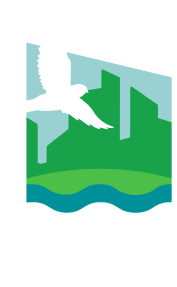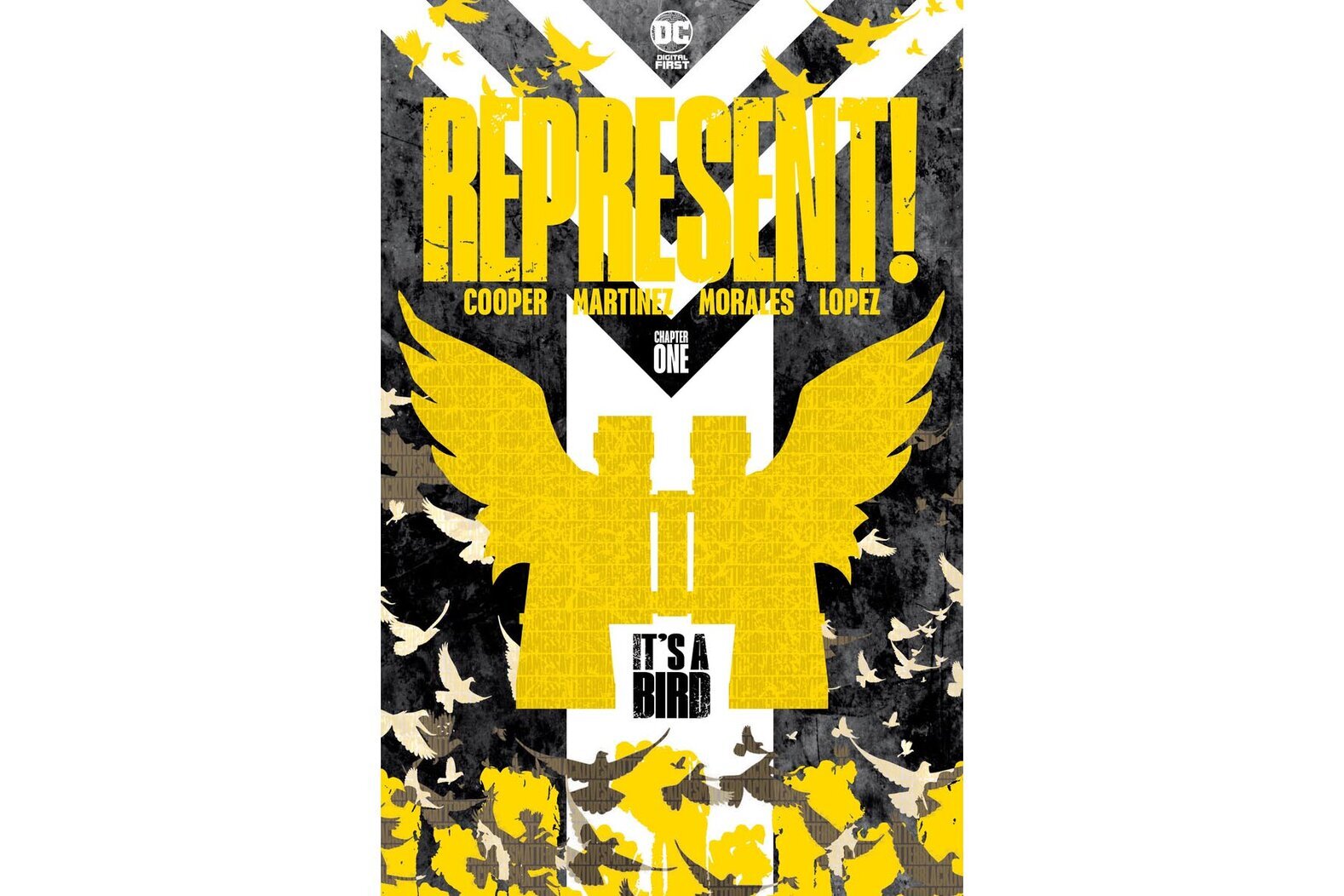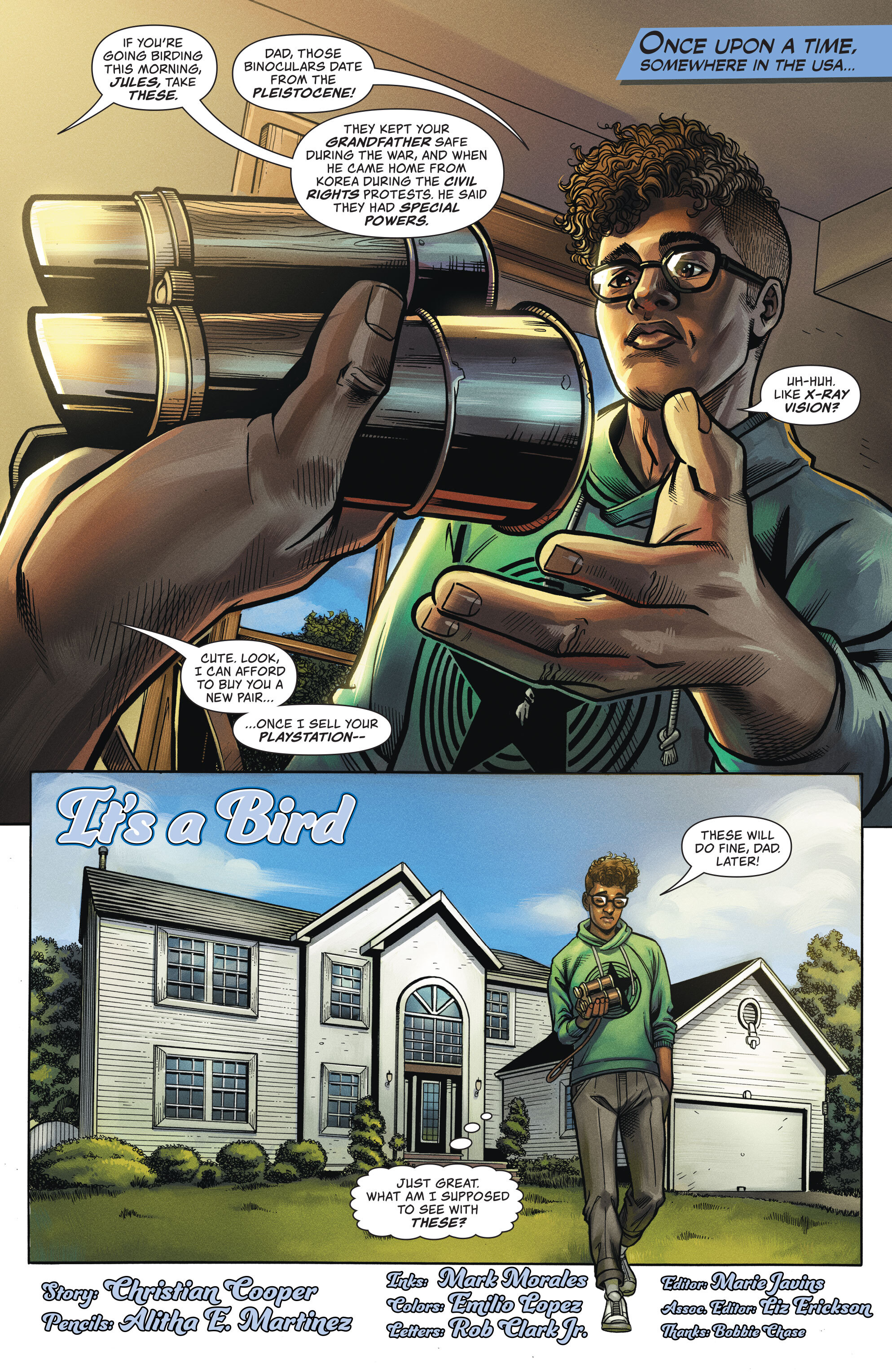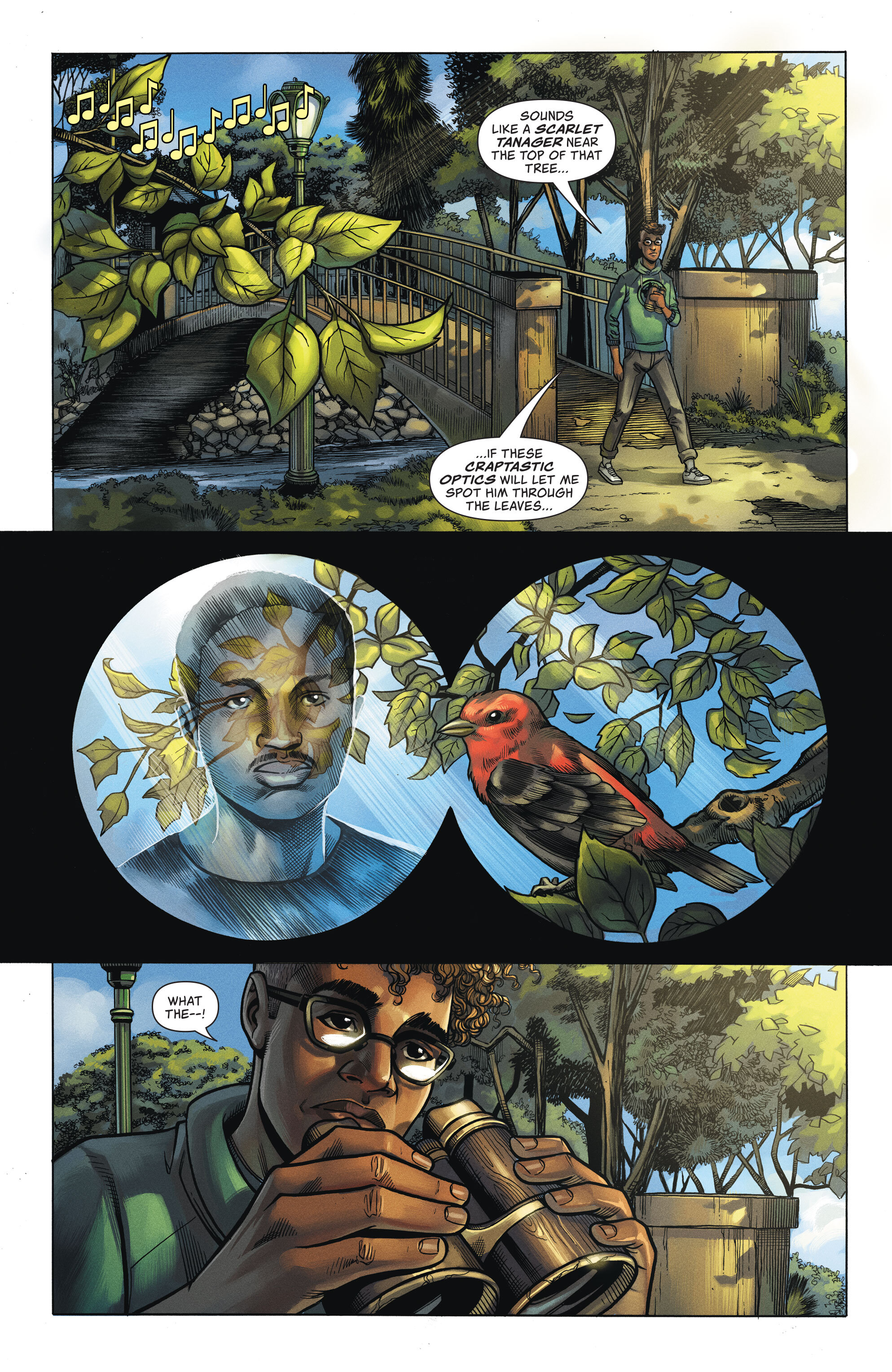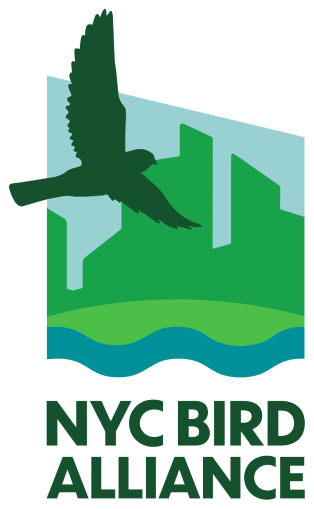"It's a Bird" Graphic Novel
category: URBAN BIRD CALLENGAGEMENT
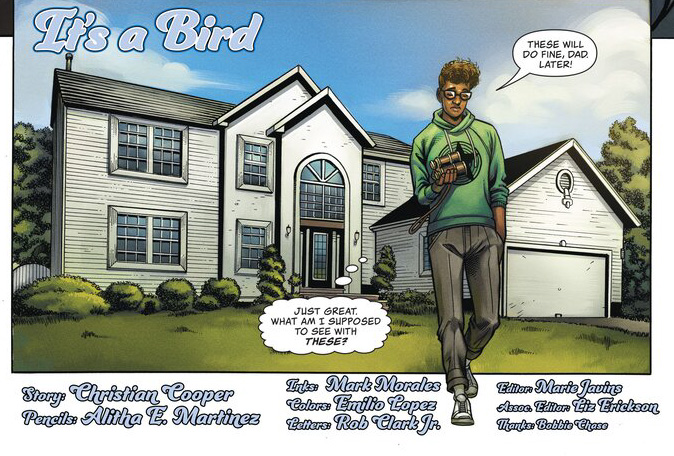
Bottom panel of page 1 of "It's a Bird." Courtesy of DC Comics
“IT’S A BIRD”
Spoiler alert: This article reveals twists and turns within NYC Bird Alliance Board Member Chris Cooper’s “It’s a Bird” comic that you may want to discover for yourself, before reading about how the comic came to be. Access a free digital copy of “It’s a Bird” at comixology.com and on other digital platforms including Amazon Kindle and Apple Books. (We have also reproduced the opening spread of “It’s a Bird” on pages 8-9 of this issue.)
On Memorial Day morning this year, Marie Javins happened upon a Facebook post by her friend Christian Cooper. Chris recounted that a woman in the Central Park Ramble had called the police after he’d asked her to leash her dog, claiming that an African American man was threatening her. Javins, who has known Cooper since they worked together at Marvel Comics in the mid-1990s, was horrified.
A tweet by Cooper’s sister about the racist incident quickly garnered attention and went viral. Later that same day, George Floyd, pleading “I can’t breathe!,” died in Minneapolis when a police officer knelt on his neck for 8 minutes and 46 seconds.
Javins, now executive editor at DC Comics, saw an opportunity to contribute something to the growing societal discussion of racial injustice. Her colleagues at work had been saying, “We should do something.” But what? Javins’ answer: “What do we specialize in? We tell stories. And stories are a great, powerful means of change. I know a good storyteller and his name is Chris Cooper!”
Her colleagues were keen on the idea, and started batting around titles for the comic. Laughing, one quipped, “It’s a Bird!” “Perfect!” said Javins.
Cooper, a NYC Bird Alliance board member and, at that time, senior editorial director at Health Science Communications, hadn’t written a comic for over two decades. But as soon as he heard the title, “The story just poured out of me.” In the wake of the Rodney King verdict in the 1990s, he’d written a similarly socially conscious comic; now he had another story to tell. “People have to stop ‘othering.’ Everyone is someone’s daughter, someone’s son.”
In the richly illustrated 10-page comic, Jules, a Black teenager, is given his grandfather’s binoculars, which his dad says have “special powers.” Out birding, Jules focuses on a Scarlet Tanager—and is amazed to also see Amadou Diallo, shot 41 times by cops on his own doorstep. More sightings follow: An Eastern Bluebird in its house and Breonna Taylor, killed by plainclothes police forcibly entering her apartment. A Yellow Warbler and George Floyd.
Cooper emphasizes that “It’s a Bird” isn’t a literal depiction of any specific event. Rather, it is informed by his experiences and those of many other Black people, all woven together in the style of magical realism. For instance, Cooper’s dad, a civil rights activist, gave him the binoculars he uses: “On my 50th birthday—wow!” Jules wears glasses, like Cooper. (“Many white people react very differently to a large Black man who’s wearing little nerdy glasses, versus one who isn’t,” Cooper notes.) As for his choice of birds, he was inspired by those presented in the recent street art of SoHo. (See a photo essay of the Soho bird murals in the fall 2020 Urban Audubon.)
When DC Comics asked Alitha Martinez to pencil the illustrations for “It’s a Bird,” she leapt at the chance. As a child of Caribbean immigrants from Curaçao and Honduras, she was coached to speak “perfect American English” and to forget her native language. Now living in Manhattan, she is hesitant to let her teenage son leave home without her: “He’s a strapping boy…. I’m afraid of what might happen to him.”
Martinez illustrated Cooper’s story faithfully; not a birder, she had to do “lots of research” to get the birds right. She had to study the horrifying pictures of George Floyd’s death, and imagine others. But for the last scene, she drew on “all the triumph and power” that attracted her to comics in the first place. When at the end of the story, Jules encounters a woman who, rather than leash her dog, threatens to call the police and claim she’s being attacked by an African-American, “I wanted big bombastic music, that sense of Superman: It’s going to be OK.” As Jules turns away, the woman’s words shrink in size, while the victims of racial violence rise into the sky, a holy host of ghostly winged superheroes.
“It is about the ones we’ve lost and how we keep from losing any more,” says Cooper.
What’s next? “It’s a Bird” is the first chapter in Represent!, DC’s new biweekly digital series spotlighting “stories of personal experiences, unheard voices, and social revolution.” Additional chapters will be available in 2021. Although some installments will focus on social issues, others will be more personal: an upcoming chapter will be about a family farm. “Stories are a powerful means of change,” says Javins. Judging by the thousands of “It’s a Bird” downloads so far, that’s just what readers are looking for. In the meantime, Cooper is busy at work on a birding-related memoir for Random House.
See below for a sneak peak of “It’s a Bird.”
Access a free digital copy of “It’s a Bird” at comixology.com or via Amazon Kindle or Apple Books.
